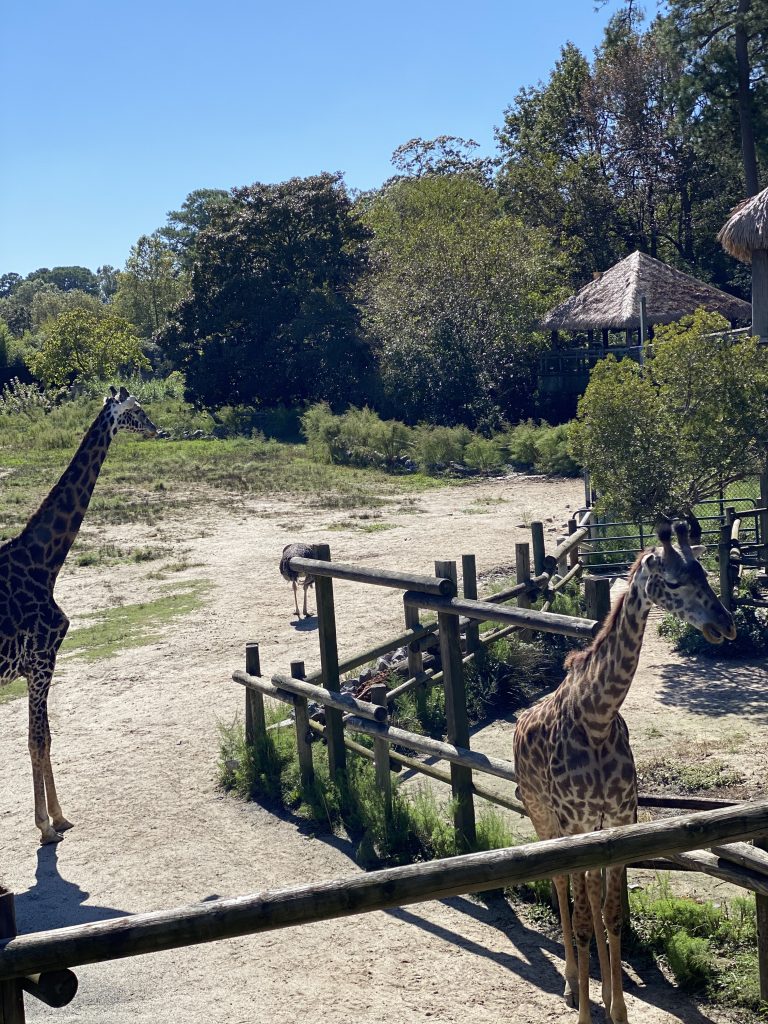Artifact 5.
Write five happy episodes or situations which you have experienced in the past.
- Spent the day in a park in Philadelphia with my fiancé
- Going to the beach with my dogs
- Reading alone on a rainy day
- Birthday dinner with my friends
- Going to the zoo with friends
2. Look at your responses again. Which episodes or situations do you think are associated with “socially disengaged emotions”? Which episodes or situations do you think are associated with “socially engaged emotions”? Write the numbers of the episodes.
Socially disengaged emotions:2,3
Socially engaged emotions:1,4,5
This was an interesting assignment as I got to think differently about my interactions. I learned I prefer to be alone and more solitude activities, rather than the more socially engaged ones. This fits well with my low extraversion personality trait.

Day alone at the beach. Representation of socially disengaged emotions.

Archive 4
It was interesting to see the differences in our results. My partner had mainly the same answers, with a few differences when it came to lawyers, architects, engineers, and designers. I think the most interesting thing is her answer when it comes to doctors, as she is a physician, it surprised me that she answered male as well. I think most of these answers come from the fact that statistically the jobs shown have higher numbers of a specific gender than others.
I liked this assignment because it showed how similar answers are for gender. Though I do think it has more to do with the association of seeing more of one gender at a job such as more doctors are male and nursing has much higher females. Instead of before were it was because you were female meant you would be a nurse, now it is just the association with what we see more of.

Archive 3
Growing up, I had parents that had different values in many things. I have always been more open to different ideas, cultures, and beliefs than my family. My family was a typical nuclear archetype. Though they were not overly religious, they did like to stick with the status quo. They placed a great emphasis on what you achieve, not who you are. They tried to place the values of not making enemies, making as many friends as possible, be as efficient as possible, not focusing on the past, and that it is a child’s responsibility to take care of the elders. Most values I do not agree with my parents. I have a much different childhood than theirs. I was homeschooled for many years as a child, because of this I learned to teach myself and look for answers in numerous locations. This made me more of an independent thinker, and questioned much of what was taught in my culture. This independence started early, as my siblings were much older so they were more of care takers and pushed to expand my thoughts and values. My experiences as a teen shaped my values away from theirs as well. Something specific was communication styles. My family is very loud and intense. Learning from peers, I quickly learned that you must change this style depending on context and the person you’re talking to or no one will want to be friends. In the late teen years, as I worked and went to school with people of all differences, it helped me look at what I was taught and if I still agreed with it.
It was nice to see how different I am in spite of my families upbringing. I did not realize just how different we were, and it is important to see that our upbringing and culture do not have to decide how we think and respond to the world. I liked this one since it showed me this.
Picture showing my extended and blended family that raised me
archive 2
The United States is an interesting culture. Because we have been a “melting pot” in the past, our collective is seen as relatively unique culturally. This can also be seen as sometimes paradoxical. Power distance for instance is on the middle/low side of the score. At 40, the United States and Sweden 31, we have low acceptance for unequal environments. The U.S. maintains a balancing act of recognizing inequality, yet we tend not to be as informal as Sweden in the workplace. Other countries that score higher on this, namely in the Eastern countries of the world such as China have a higher score. This is unsurprising due to the cultural importance of respecting elders. These deferrers as well when individualizing is concerned. While Sweden lists high, the U.S. score is one of the highest. We can see this mentality when it comes to our lack of family importance, the nuclear family, and the widespread belief that you are responsible for your own success and failures. We have a above neutral score in masculinity, not surprising as domestic and gender roles are often pushed in the U.S. Luckily this seems to be a downward trend. We can see this in the new abortion laws going into effect. As the role of childrearing and gender constructs force women into roles which they do not want. I’m surprised the U.S. was not higher scored in uncertainty avoidance. Many seem to be wary of cultures different than theirs. While Countries such as Sweden scores very low of masculinity, seemingly to have very little when it comes to gendered oppression and role importance. While they are high on individualism as well, they score low for uncertainty avoidance. While they culturally like to have space, they are more welcome to differences.
This was interesting to write, I have been interested in the differences between the U.S. and Nordic cultures for awhile, and this was a good opportunity to see it in an academic light. I learned I probably would get along better with the cultural values of those in Sweden compared to the U.S.

Archive 1
When it comes to a subject as complicated as personality, I do not think there is one answer. We often think of personality as a constant across most situations or as a baseline. While this is true in theory, environmental factors effect how traits are expressed which can be seen as a change in personality. One example is missing a few assignments for this class, and being unable to express this in a timely manner. This goes against my high trait of conscientiousness, as normally I am orderly, competent, and self-disciplined as the sub traits explain. On the other hand, I have a high neuroticism trait, which sub traits were expressed in this episode such as anxiety, self-consciousness, and depression. Another episode would be my low extraversion, most of the time I am not a fan of talking to new people, and tend to be less assertive. On this occurrence I saw someone disrespecting a cashier. Even though I tend not pull attention, I knew it was not right what the person was saying, so I told them that “it’s not their fault the card reader isn’t working, there’s no reason to be a rude jerk.” My high values and feelings over road the low extraversion.
This was my favorite because I love personality theory, and how these traits effect us everyday. Being able to look constructively at our traits and behaviors is helpful when trying to change or learn from past mistakes. I think it was a good opportunity to take a lot of what we learned and apply it to ourselves.
